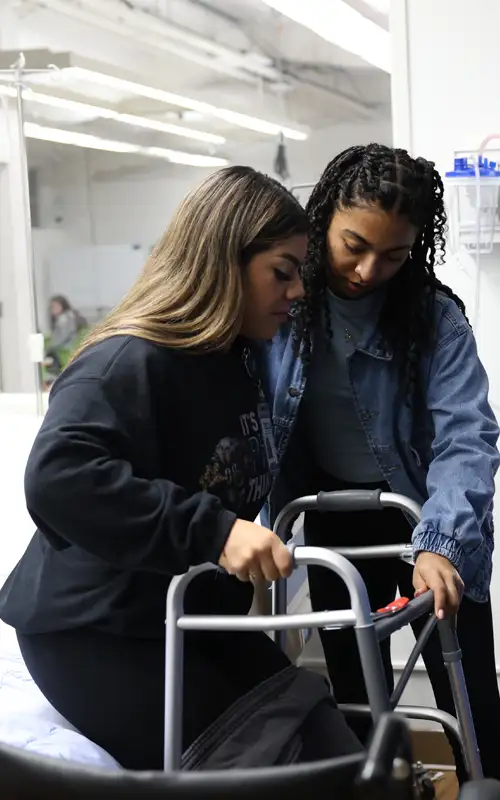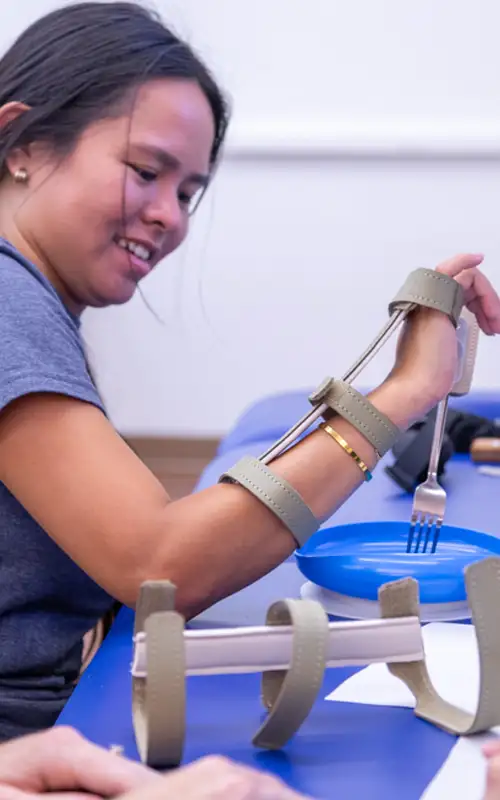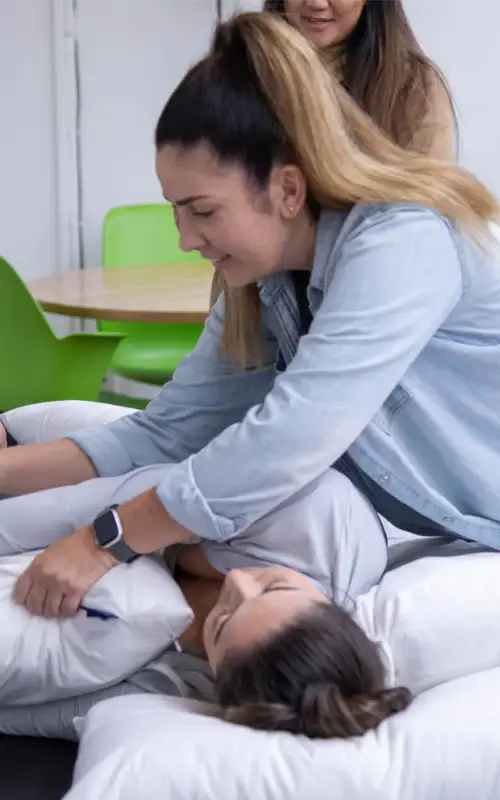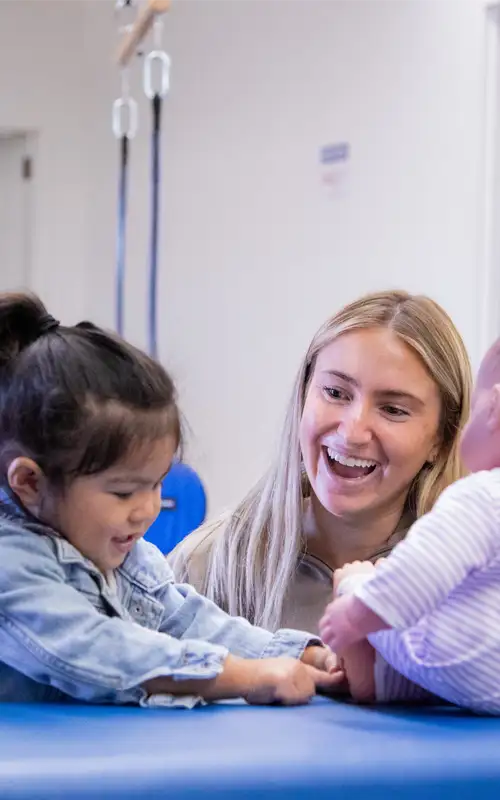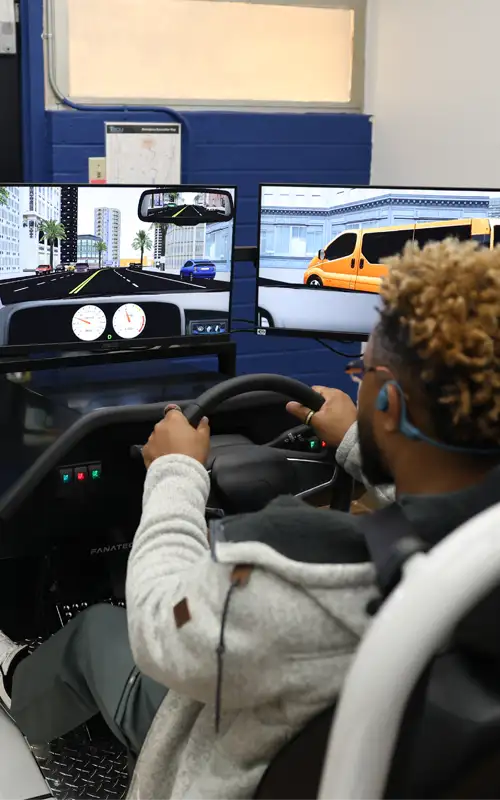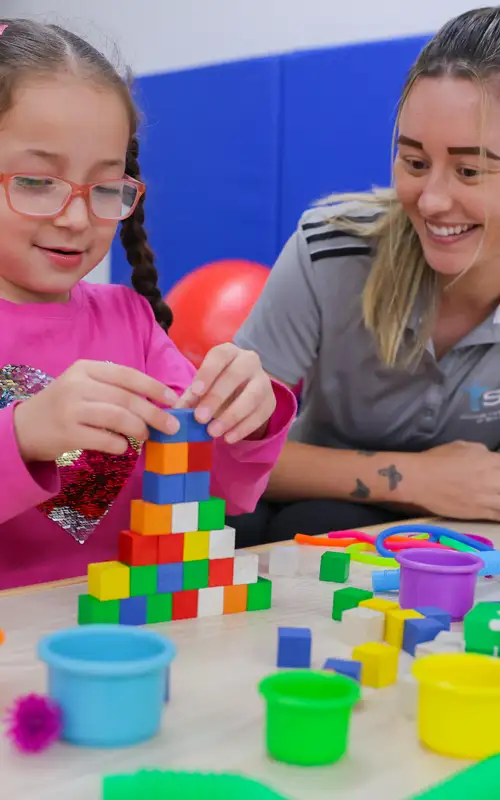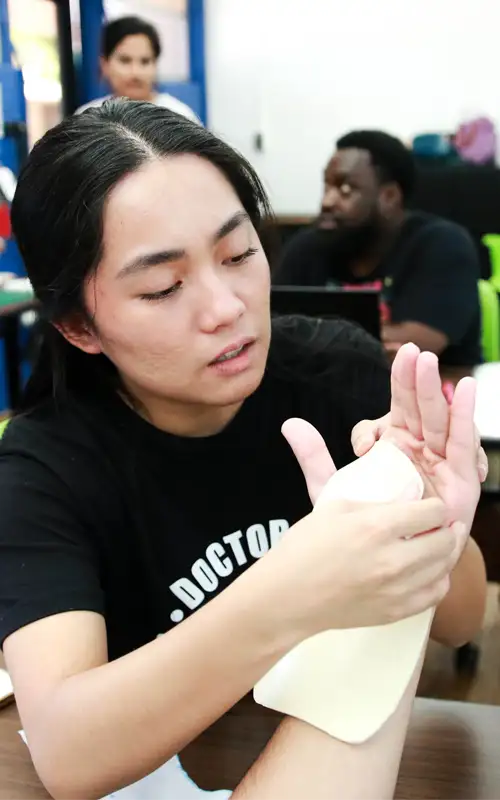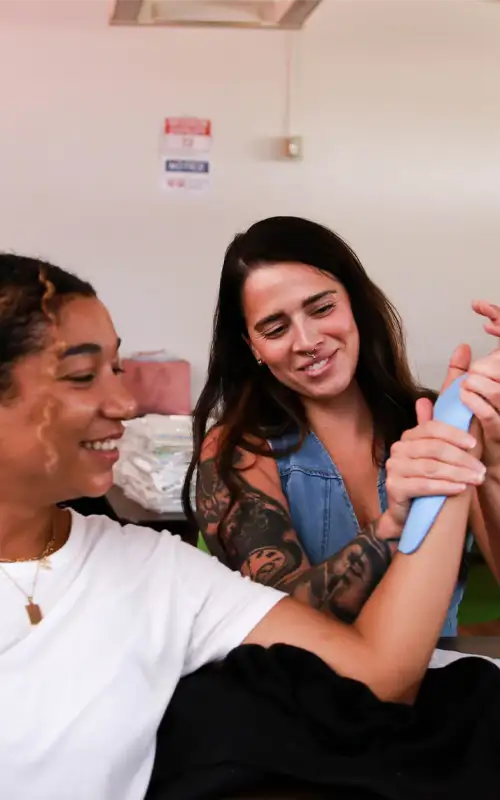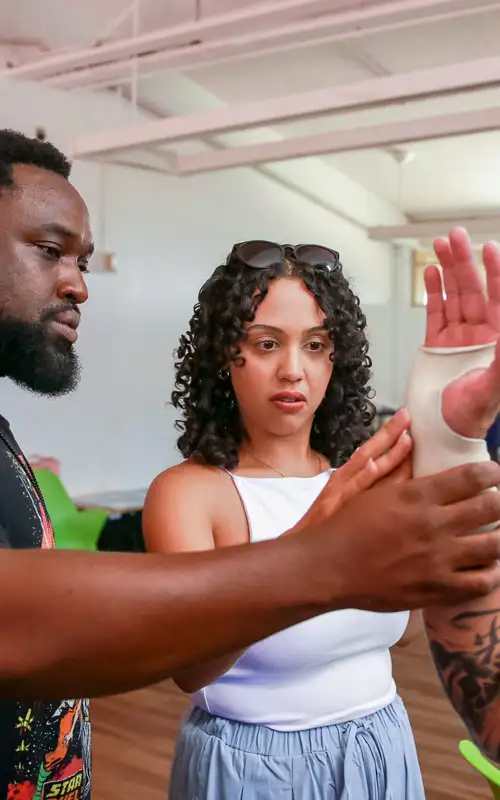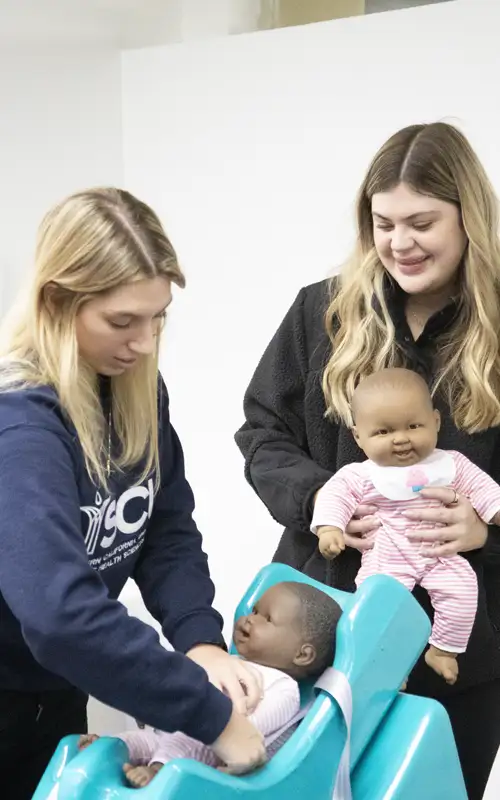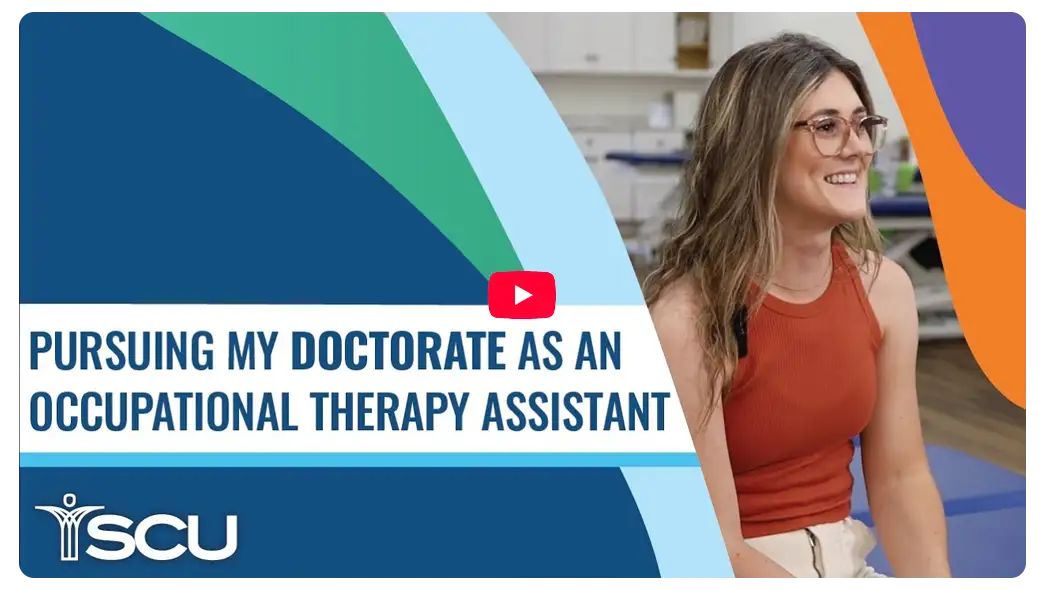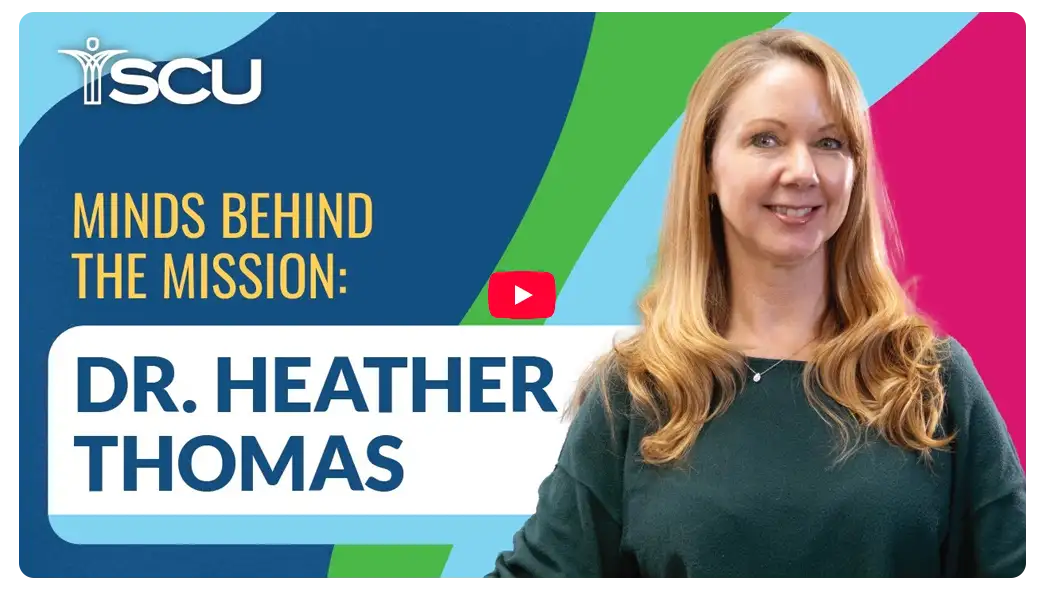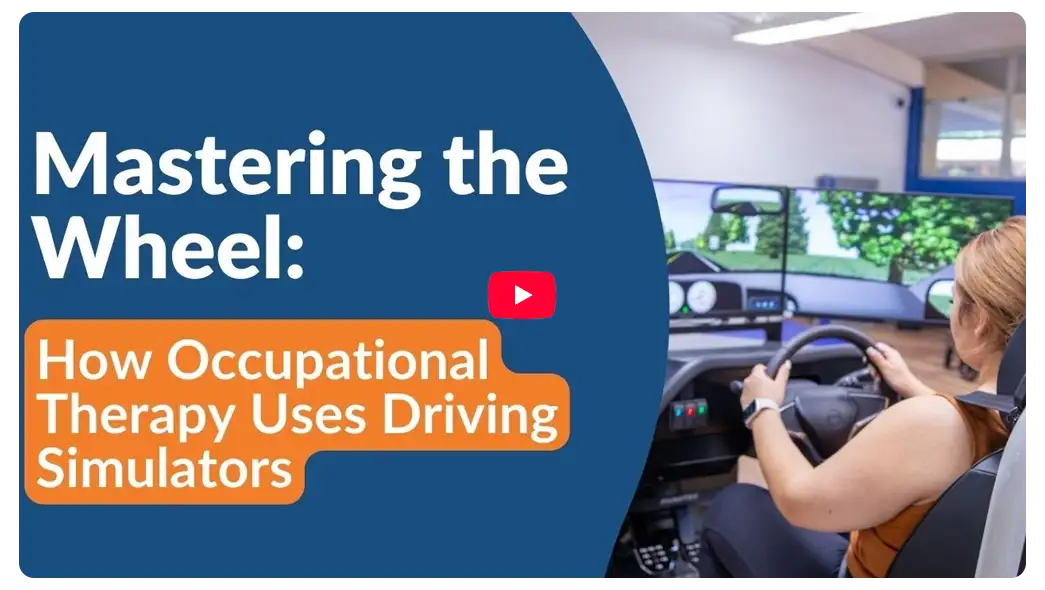Doctor of Occupational Therapy – Phoenix Metro Campus
Overview
Occupational Therapists (OTs) help people with physical, cognitive, or developmental challenges achieve greater independence by improving their ability to perform everyday activities. They work in a wide range of settings (hospitals, rehabilitation facilities, schools, private practice, and beyond), conducting assessments and developing comprehensive treatment plans that include adaptive tools and equipment, therapeutic activities and exercises, and even training for caregivers.
As entry-level Doctors of Occupational Therapy (OTDs), students are prepared with the foundational knowledge and clinical competencies required to enter the profession as highly skilled and credentialed practitioners. The OTD program enables diverse career paths that may include advancing into leadership roles, designing programs, contributing to research, engaging in policy and advocacy efforts, teaching in academic settings, and more as careers progress.
SCU’s Phoenix-based Doctor of Occupational Therapy program is delivered predominantly online, allowing students to earn their doctorates and advance their careers in just two years, without relocating.
Program at a Glance
- Full-time, accelerated, hybrid program (2 years)
- Largely online; students come to campus just twice per term
- Prepares graduates to sit for the National Board for Certification in Occupational Therapy (NBCOT) exam
- Fixed tuition guarantee, federal financial aid for those who qualify, and a range of institutional scholarship opportunities
Upcoming Start Dates
- Fall: September 8th, 2026
Click on the image above to see our Doctor of Occupational Therapy program in action.
What Sets Our Program Apart?
REMOTE-FRIENDLY FORMAT
Our online and on-ground blended program makes it possible to pursue an occupational therapy doctorate degree without relocating. During Year 1, you’ll complete 70% of your requirements from home through self-paced and live online coursework, and come to our Phoenix Metro Campus (in Tempe, Arizona) just two times per term for hands-on clinical training. During Year 2, you’ll work on a Capstone Project of your choosing while completing on-site clinical rotations at one of our partner sites near your home (subject to availability) or in a new city within the U.S.
ACADEMIC & PROFESSIONAL MENTORSHIP
As an OTD student at our Phoenix Metro Campus, you will receive personalized support and advisement from a dedicated faculty advisor. You’ll meet with your advisor at least twice per term (or as often as you need), to help you navigate the program, problem-solve, and succeed both academically and professionally. In addition, you’ll receive support from our program’s Academic Fieldwork Coordinator for your Level I and Level II fieldwork experiences, as well as our Doctoral Capstone Coordinator, who is responsible for helping you develop your individualized capstone experience.
STUDENT-LED CAPSTONE PROJECT
One of the most rewarding portions of your OTD program, your Doctoral Capstone project, will give you the opportunity to explore and demonstrate innovative thinking in an area of particular interest to you. Your project will include written, experiential, and oral components, and we’ll support you each step of the way through online capstone seminars and advisement from a faculty mentor who has expertise in your chosen topic. The Doctoral Capstone is an academic and professional milestone, often leading to publications, future research opportunities, and other career advancements.
TECHNOLOGY-ENHANCED LEARNING
In addition to classroom lessons and hands-on clinical training, we support your learning through advanced teaching technology including:
- Virtual Reality (VR): You’ll have the opportunity to use specialized VR technology to improve patient engagement and provide a safe yet dynamic environment for therapeutic interventions.
- Complete Anatomy: Also known as 3D4 Medical, Complete Anatomy is a powerful simulated anatomy suite on which you can perform intricate tasks such as removing layers of tissue and visualizing details of the human body.
- Draw It to Know It (DITKI): This interactive tool is perhaps our most popular, featuring YouTube-style videos that include drawings, animations, and digital worksheets to help you more easily learn about anatomy and physiology and successfully prepare for your exams.
UNIQUE INTERPROFESSIONAL EDUCATION.
Most of today’s healthcare colleges offer an “interprofessional education” through which students learn with, from, and about other disciplines. But at SCU, we do it differently. Unlike other colleges, we teach you about both conventional and complementary disciplines—not just one or the other—because we believe in both and we teach both, all under one roof.
AN INTEGRATIVE, WHOLE HEALTH APPROACH
All too often, healthcare providers “stay in their lanes” rather than building comprehensive care plans that include other disciplines, professionals, and approaches. In addition, they look strictly at the physical body as opposed to all the factors that may be influencing a patient’s health and well-being—genetics, lifestyle, mental health, relationships, physical environments, community support, and beyond. But at SCU, no matter what program you are in, you’ll learn to blend the best of conventional and complementary approaches (integrative healthcare) and to treat the entire mind, body, and spirit (whole health)—for true lasting wellness.
Doctoral-Degree-Level Occupational Therapy Program (Applicant Program)
The entry-level occupational therapy doctoral degree program has applied for accreditation and has been granted Candidacy Status by the Accreditation Council for Occupational Therapy Education (ACOTE) of the American Occupational Therapy Association (AOTA), located at 7501 Wisconsin Avenue, Suite 510E, Bethesda, MD 20814. ACOTE’s telephone number c/o AOTA is (301) 652-6611 and its web address is www.acoteonline.org. The program must have a pre-accreditation review, complete an on-site evaluation, and be granted Accreditation Status before its graduates will be eligible to sit for the national certification examination for the occupational therapist administered by the National Board for Certification in Occupational Therapy (NBCOT). After successful completion of this exam, the individual will be an Occupational Therapist, Registered (OTR). In addition, all states require licensure in order to practice; however, state licenses are usually based on the results of the NBCOT Certification Examination. Note that a felony conviction may affect a graduate’s ability to sit for the NBCOT certification examination or attain state licensure.
Student Achievement
The SCU Phoenix OTD program’s first cohort of students entered in the Spring Term of 2025 with a graduation year in 2026. The available program outcome data is limited at this time. Upon graduation of the first cohort, outcome data on NBCOT exam pass rate will be available on the National Board for Certification in Occupational Therapy (NBCOT®) program data results page.
| Graduation Year |
Students Entering/Graduating |
Graduation Rate |
|
2026 |
9/NA |
NA |
|
2027 |
22/NA |
NA |
|
2028 |
NA |
NA |
|
Totals |
31/NA |
NA |

